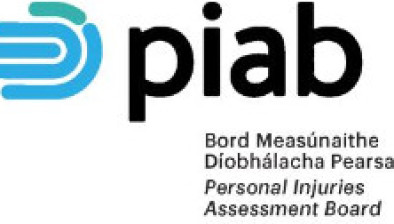Court of Appeal: Defendants must provide particulars of ‘bald denial’ in personal injuries action

Killian Flood BL
The Court of Appeal has ruled that the defendants in a personal injuries action must provide further information to the plaintiff about a “bald denial” in their defence.

About this case:
- Citation:[2020] IECA 364
- Judgment:
- Court:Court of Appeal
- Judge:Mr Justice Maurice Collins
The plaintiff had argued that section 13 of the Civil Liability and Courts Act 2004 required the defendant to provide “full and detailed particulars of each denial or traverse” in the defence and said that the defendant had failed to do so.
The High Court had refused the plaintiff’s application for particulars on the basis that the pleading in question was a denial rather than a positive ground of defence. On Tuesday, the Court of Appeal overturned this decision and required the defendant to provide the requested particulars of pleading.
Background
The plaintiff, Mr Daniel Crean, had a hip replacement operation in 2015, which was carried out by Mr James Harty at Victoria Hospital Cork. Mr Crean had two previous operations on his hip and, after the 2015 operation, he developed peripheral neuropathy in his right leg. He sued Mr Harty, Victoria Hospital and the Health Service Executive for damages for personal injuries. The plaintiff alleged that the third operation had significant risks associated with it due to the previous surgeries and that the defendants failed to inform him of this. As such, he pleaded that the surgery had been performed with his informed consent.
Separate defences were delivered by Mr Harty and the Hospital and the HSE, but contained identical defences in relation to the informed consent allegation. The defences contained a simple denial that the defendants failed to obtain the plaintiff’s informed consent prior to the surgery. The plaintiff’s solicitors subsequently wrote to the defendants’ solicitors seeking further particulars of the denial, including the precise advice which was allegedly given to the plaintiff, the people who gave the advice and whether the advice had been provided to the plaintiff in writing.
The defendants’ solicitors claimed that it was not appropriate for the plaintiff to raise particulars of “straight denial” in a personal injuries defence and refused to provide any further information to the plaintiff. The plaintiff then issued a motion to compel the defendants to reply to their notice for particulars, but this was refused by the High Court. As such, the plaintiff appealed the High Court decision to the Court of Appeal.
The Court of Appeal
The plaintiff argued in the Court of Appeal that the Civil Liability and Courts Act 2004 was enacted to provide “maximum disclosure” in personal injuries litigation. It was submitted to the court that section 13(1)(b) of the Act required the defendants to give full and detailed particulars of the denial that the defendants failed to obtain informed consent. In response, the defendants said that the requirements under the 2004 Act were complied with by pleading a “straight denial.” They argued that the plea was not a positive plea making allegations, but rather a negative plea which put the plaintiff on proof of his case. The defendants also claimed that the particulars were an impermissible attempt by the plaintiff to seek evidence from the defendants via a notice of particulars.
The court determined that the particulars were necessary for the plaintiff to establish the case he had to meet at trial. Giving the judgment of the court, Mr Justice Maurice Collins said that the denial by the defendants in this case was, in substance, a positive plea that the defendants had obtained informed consent prior to the operation. The defendants had simply denied every aspect of the risks which the plaintiff alleged in the case and this meant that the plaintiff was unaware of exactly what the defendants were alleging in their defence. For example, the plaintiff did not know whether the defendants case was that “the alleged risks identified in the Summons were in fact risks of the surgery at all or whether, though accepting that such risks arose, their position is that they were not, in the circumstances, under a duty to advise of such risks or whether, in fact, they assert that the Plaintiff was advised of those risks and gave (informed) consent on that basis.”
Moreover, the court also held that the requirements in the 2004 Act “put the matter beyond doubt.” The court said that the provisions of the Act were intended to ensure that parties plead their cases with greater precision so that the actual issues are clearly identified prior to the trial. The court rejected the defendants submissions that a “bald denial” satisfied the requirement of the 2004 Act, saying that this argument was “swept away by the unambiguous and imperative terms” of the Act. The mere fact that a plea is expressed in the negative, such as a denial, does not mean that the defendants were not required by the Act to provide further particulars of that plea.
The court also rejected the assertion that the plaintiff was seeking evidence rather than facts. The court, citing Mr Justice Donal O’Donnell in Quinn Insurance (In Administration) v. PriceWaterhouseCoopers [2019] IESC 19, held that if particulars are necessary in a case to allow a party to prepare for trial, it is immaterial if those particulars disclose some evidence to that party. Here, the particulars did not go beyond what the defendants’ defence was to the issue of informed consent, the court said.
Conclusion
The court allowed the plaintiff’s appeal and ordered the defendants to provide the further and better particulars to the plaintiff.










